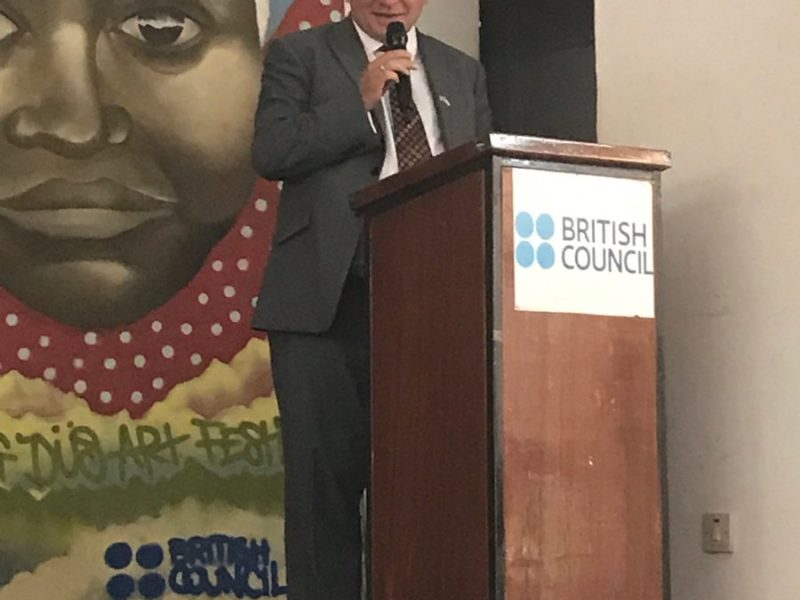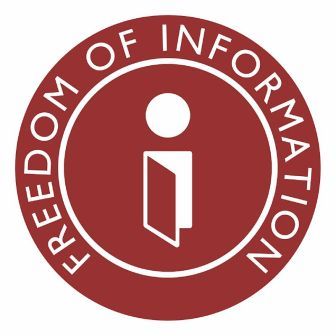Ian Hughes blogs on World Press Freedom Day
“We must ensure that both online and offline innovation and free flow of ideas, information and expression are protected” – William Hague (Photo: author – Ian Hughes, British High Commissioner, Sierra Leone)
Yesterday, 03 May, marked World Press Freedom Day (WPFD). WPFD commemorates the right of members of the fourth estate to self expression and gives an opportunity to celebrate and to honour the work of all those who strive to defend this fundamental right. It also serves as a reminder that as individuals and governments we have a duty to uphold and respect this right, a part of the universal declaration of human rights.
Countries across the world mark WPFD in diverse ways. Common among them is the recognition of outstanding contribution by an individual, group or institution, either through promotion or defence of press freedom. Typically awards are handed out and the recipient celebrated.
But this is not the case in every country in the world. Already this year 19 journalists have been killed pursuing their careers in difficult and harrowing environments such as warzones and areas of civil-strife. Many more have suffered imprisonment, harassment and intimidation. As the Foreign Secretary said, “today we remember them all, including Sunday Times Journalist Marie Colvin and French photographer Remi Ochlik, who died bringing us the truth about what is happening to the people of Homs”.
This goes to show that the achievement of press freedom is a collective effort and one to which we must all apply ourselves. Apart from dedication to, and in increasing instances bravery by the promoter or defender, it also requires an enabling environment: a government that understands the need to encourage the practice, an audience that appreciates the quality of the views, analysis and comment expressed and an atmosphere where people can engage in constructive dialogue over these issues.
This year’s commemoration in Sierra Leone is particularly symbolic. Media of all descriptions, be it print, online, radio, television or bloggers such as myself, has a responsibility to report accurately and timely. In an election year the importance of impartial and unbiased coverage of political activity could not be more important. Facilitation of public discourse on issues, rather than personalities, is a challenge for Sierra Leone’s media to rise to.
And the signs are encouraging. The independent media commission is encouraging its members to practice professional journalism. I hope that the government will soon pass the freedom of information bill, paving the way to accurate information to inform discussion. The reading public is exposed to a plethora of newspapers, journals and other sources of news and information. Sierra Leone has a vibrant journalistic community, I see this each day from the tower of newspapers that pass across my desk and my press team are constantly pouring over websites written by Sierra Leoneans both here and overseas. We are getting there.
So in this election year we must ensure that members of the press are able push for their right to report freely and responsibly. In return the public will expect timely and accurate reporting of the issues helping to protect the peace. I look forward to seeing both media houses and the public engaging in spirited debate and discourse over the next few months. Open discussion can lead to a peaceful and prosperous Sierra Leone, in light of this I would like to hear what role you feel the media plays in Sierra Leone and how do we celebrate it?
Ian Hughes, British High Commissioner, Sierra Leone
Stay with Sierra Express Media, for your trusted place in news!
© 2012, https:. All rights reserved.





